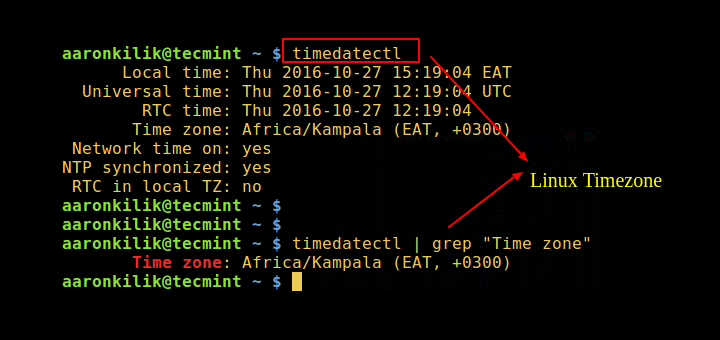Learn Linux Shell Utilites
Posted by Moussan

in this chapter we will cover some important Shell Utilites commands that will help you to deal with linux operating system easily
Usage : display list of users who logged in with you to the system right now
Usage : display which user you used to log-in to the system
Usage : display detailed information about all users existing in the system
Usage : display how long the system works (Booting Time)
Usage : display successfull booting times of the system and also display if these users are disconnected or still logged-in
Usage : display failed attempts of system booting
Usage : returns type of your operating system (linux)
Usage : returns some information about your operating system like
server name , kernel version , 32 bit or 64 bit
Usage : returns information about server name and some info about your operating system

Usage : Change server hostname of your operating system
Usage : returns time and date on server

Change (Date) :
timedatectl + set-time + {2019-12-9}
Change (Time) :timedatectl + set-time + {5:30}
Change (time zone) :timedatectl + set-timezone + Africa/Cairo
in this section we will cover how to compress any file in linux by command line
there are 3 main commands for this function :
tar / gzip / bzip2
1- Tar Command
To Compress Files :
tar + { -cvf } + {file.tar} + file1 file2
(file.tar) => refers to compressed file which will be generated from Compression of file1 and file2
( -cvf ) => it's option used with tar command for compression
To Display Content of Compressed Files:
tar + { -tvf } + dir.tar
Usage : display files in dir compressed folder without uncompress it
To uncompress Files :
tar + { -xvf } + dir.tar
2- Gzip Command
To Compress Files :
gzip + file1 file2
this command will replace these 2 files with new 2 compressed files file1.gz , file2.gz
To Uncompress Files :
gunzip + file.gz
this command will restore the original file and undo the compression
3- Bzip2 Command
To Compress Files :
bzip2 + file1 file2
output compressed files will be like file1.bz2 , file2.bz2
To Uncompress Files :
bunzip2 + file.bz2
1- Grep Command
Example :
grep -i + word + file
Usage : search about any word inside files
2- Find Command
Structure :
find + place + option + argument
Example :
find /var -name log
to search in files only:
find /var -name log -type f
to search in directories only:
find /var -name log -type d
1- set or env Command
Example : set | more
Usage : display all linux shell variables
2- echo + ${variable_name}
Usage : display value of specific shell variable
3- unset Command
Usage : remove any shell variable
4- variable_name = value
Example : x = 5
Usage : create new shell variable
Example :
Command1 ; Command2 ;
to execute multi commands at once we can add ( ; ) after each command
Content Index
Learn For Free
